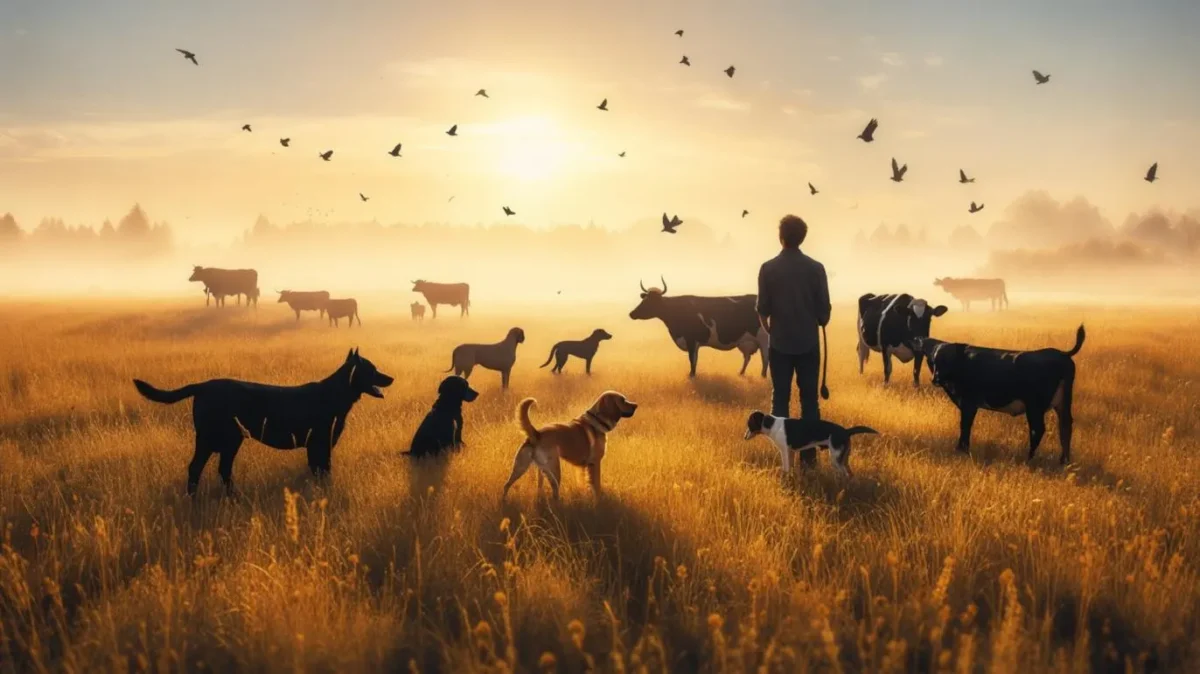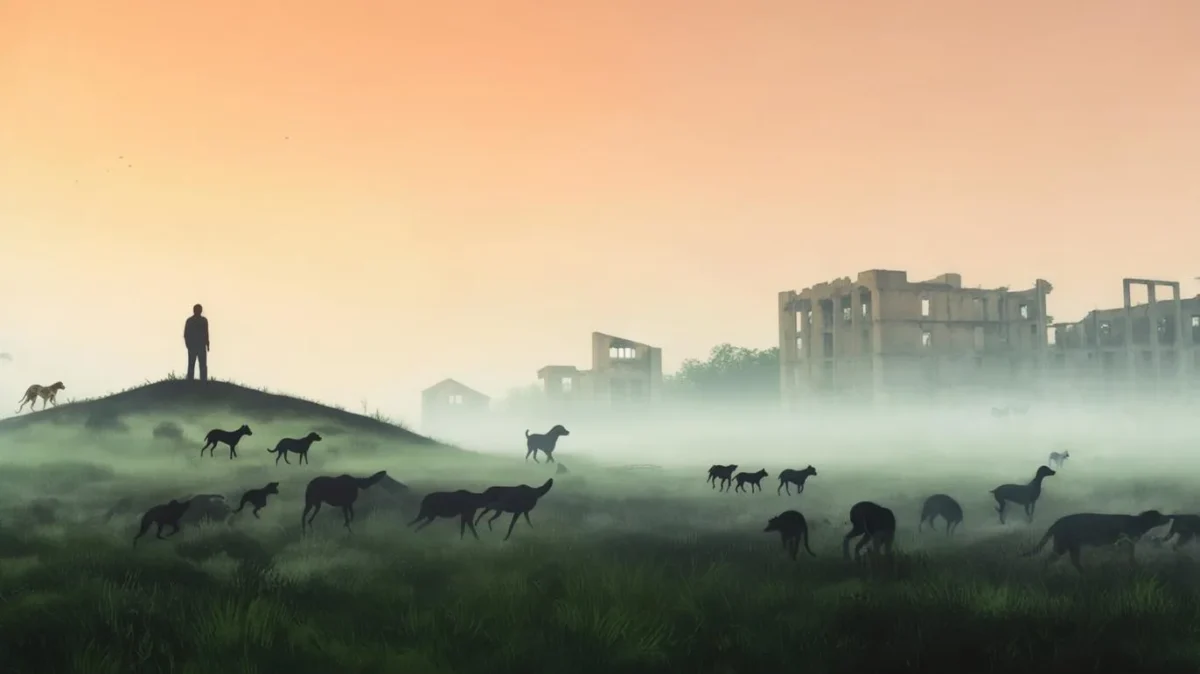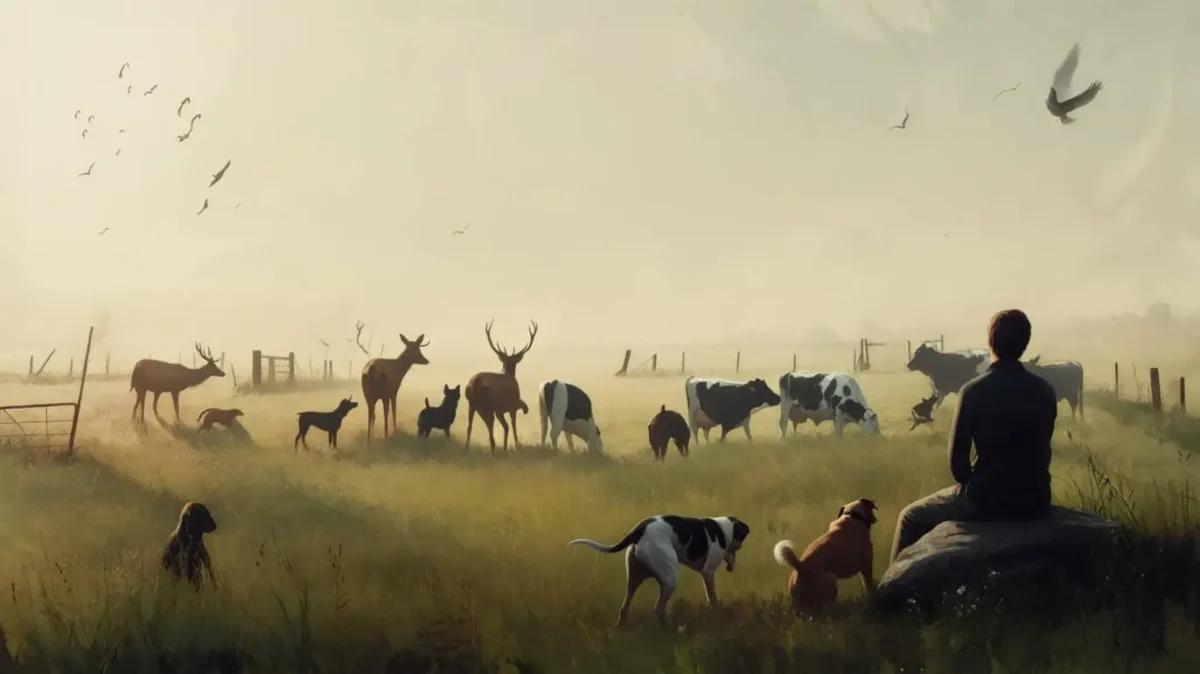It explores Walt Whitman’s admiration for animals’ simplicity and critiques human flaws, key themes for HSLC 2026 exams, helping students score well.
SEBA Class 10 English Chapter 6 Animals MCQs। Very Important MCQs on Animals First Flight Textbook
Class 10 English Chapter 6 Animals MCQs
ইয়াত Class 10 ৰ English পাঠ্যপুথিৰ Chapter 6: Animals (Walt Whitman) পাঠৰ MCQs সৰল আৰু সহজকৈ উপস্থাপন কৰা হৈছে। এই প্রশ্নোত্তৰসমূহ SEBA HSLC 2026 পৰীক্ষাৰ বাবে অত্যন্ত গুৰুত্বপূর্ণ। পাঠটোত জন্তুৰ সৰলতা, মানবিক দোষৰ সমালোচনা, আৰু প্ৰকৃতিৰ সৈতে সংযোগৰ ওপৰত আলোচনা কৰা হৈছে।
Prepare effectively for your SEBA Class 10 English Chapter 6 Animals by Walt Whitman with our MCQs. These multiple-choice questions focus on the poem's themes like animal simplicity, rejection of materialism, and contrast between humans and nature—helping boost your HSLC 2026 exam performance.
Explore Related Visuals




Chapter 6 Animals MCQs
Table of Contents
Knowledge-Based Questions
(a) Robert Frost
(b) Walt Whitman
(c) William Wordsworth
(d) John Keats
Answer: (b) Walt Whitman
Explanation: Walt Whitman wrote "Animals," part of his free verse collection.
(a) Leaves of Grass
(b) Lyrical Ballads
(c) The Road Not Taken
(d) Ode to a Nightingale
Answer: (a) Leaves of Grass
Explanation: "Animals" is from Whitman’s "Leaves of Grass."
(a) They are greedy
(b) They are placid and self-contained
(c) They worship ancestors
(d) They are materialistic
Answer: (b) They are placid and self-contained
Explanation: Animals are calm and independent, per Whitman.
(a) Realism
(b) Romanticism
(c) Modernism
(d) Classicism
Answer: (b) Romanticism
Explanation: Whitman’s focus on nature aligns with Romanticism.
(a) Rhymed verse
(b) Free verse
(c) Sonnet
(d) Ballad
Answer: (b) Free verse
Explanation: Whitman uses free verse for natural expression.
Understanding-Based Questions
(a) Animals are wealthy
(b) Animals are simpler and more authentic
(c) Animals are more intelligent
(d) Animals follow religious duties
Answer: (b) Animals are simpler and more authentic
Explanation: Whitman admires animals’ lack of hypocrisy.
(a) Animals are sinful
(b) Animals lack guilt or remorse
(c) Animals are religious
(d) Animals are sleepless
Answer: (b) Animals lack guilt or remorse
Explanation: Animals are free from human guilt.
(a) Material wealth
(b) Innate qualities of human nature
(c) Religious symbols
(d) Social status
Answer: (b) Innate qualities of human nature
Explanation: Tokens are virtues animals retain and humans lost.
(a) More authentic
(b) Greedy and hypocritical
(c) Peaceful and content
(d) Equal and simple
Answer: (b) Greedy and hypocritical
Explanation: Whitman critiques human greed and artificiality.
(a) It has made humans more natural
(b) It has distanced humans from their true nature
(c) It has no effect on humans
(d) It has made humans equal
Answer: (b) It has distanced humans from their true nature
Explanation: Civilization corrupts natural virtues, per Romanticism.
Assertion-Reason Questions
Reason (R): Animals are free from the mania of owning things.
(a) Both A and R are true, and R is the correct explanation of A.
(b) Both A and R are true, but R is not the correct explanation of A.
(c) A is true, but R is false.
(d) A is false, but R is true.
Answer: (a) Both A and R are true, and R is the correct explanation of A.
Explanation: Animals’ lack of materialism explains the poet’s preference.
Reason (R): Animals lack social hierarchies.
(a) Both A and R are true, and R is the correct explanation of A.
(b) Both A and R are true, but R is not the correct explanation of A.
(c) A is true, but R is false.
(d) A is false, but R is true.
Answer: (a) Both A and R are true, and R is the correct explanation of A.
Explanation: Equality among animals explains no kneeling.
Reason (R): Animals are more intelligent than humans.
(a) Both A and R are true, and R is the correct explanation of A.
(b) Both A and R are true, but R is not the correct explanation of A.
(c) A is true, but R is false.
(d) A is false, but R is true.
Answer: (c) A is true, but R is false.
Explanation: Connection is due to animals’ virtues, not intelligence.
Reason (R): Civilization has influenced humans negatively.
(a) Both A and R are true, and R is the correct explanation of A.
(b) Both A and R are true, but R is not the correct explanation of A.
(c) A is true, but R is false.
(d) A is false, but R is true.
Answer: (a) Both A and R are true, and R is the correct explanation of A.
Explanation: Civilization caused loss of simplicity.
Reason (R): Animals lack material possessions.
(a) Both A and R are true, and R is the correct explanation of A.
(b) Both A and R are true, but R is not the correct explanation of A.
(c) A is true, but R is false.
(d) A is false, but R is true.
Answer: (d) A is false, but R is true.
Explanation: Animals are content, not dissatisfied, and lack possessions.
Multiple-Answer Questions
I. Contentment
II. Greed
III. Equality
IV. Hypocrisy
(a) I, III
(b) II, IV
(c) I, II, IV
(d) II, III
Answer: (a) I, III
Explanation: Animals are content and equal, not greedy or hypocritical.
I. Complaining about their condition
II. Living peacefully
III. Weeping for sins
IV. Being self-contained
(a) I, III
(b) II, IV
(c) I, II, III
(d) III, IV
Answer: (a) I, III
Explanation: Humans complain and weep, unlike peaceful animals.
I. Greed
II. Simplicity
III. Hypocrisy
IV. Contentment
(a) I, III
(b) II, IV
(c) I, II, IV
(d) II, III
Answer: (a) I, III
Explanation: Whitman critiques greed and hypocrisy.
I. Admiration for nature
II. Critique of civilization
III. Emphasis on material wealth
IV. Value of innate qualities
(a) I, II, IV
(b) II, III
(c) I, III, IV
(d) I, II
Answer: (a) I, II, IV
Explanation: The poem praises nature and innate qualities, critiques civilization.
I. Obsession with ownership
II. Equality
III. Discussing duty to God
IV. Peaceful living
(a) I, III
(b) II, IV
(c) I, II, III
(d) II, III
Answer: (a) I, III
Explanation: Ownership and religious discussions are criticized.
Word Meaning Questions
(a) Angry
(b) Calm and peaceful
(c) Confused
(d) Greedy
Answer: (b) Calm and peaceful
Explanation: "Placid" describes animals’ serene nature.
(a) Dependent on others
(b) Independent
(c) Greedy
(d) Religious
Answer: (b) Independent
Explanation: Animals are self-sufficient.
(a) Happiness
(b) Extreme obsession
(c) Peace
(d) Equality
Answer: (b) Extreme obsession
Explanation: "Mania" refers to humans’ obsession with ownership.
(a) To hide
(b) To show clearly
(c) To complain
(d) To worship
Answer: (b) To show clearly
Explanation: Animals clearly show virtues.
(a) Carefully
(b) Carelessly
(c) Respectfully
(d) Intentionally
Answer: (b) Carelessly
Explanation: The poet wonders if virtues were lost carelessly.
Synonyms and Antonyms Questions
(a) Turbulent
(b) Serene
(c) Angry
(d) Chaotic
Answer: (b) Serene
Explanation: "Serene" means calm, like "placid."
(a) Praise
(b) Complain
(c) Celebrate
(d) Sing
Answer: (b) Complain
Explanation: "Whine" is synonymous with "complain."
(a) Sane
(b) Mad
(c) Happy
(d) Calm
Answer: (b) Mad
Explanation: "Demented" means mad.
(a) Unhappy
(b) Content
(c) Angry
(d) Greedy
Answer: (b) Content
Explanation: "Content" is the opposite of "dissatisfied."
(a) Bow
(b) Stand
(c) Worship
(d) Pray
Answer: (b) Stand
Explanation: "Stand" is the opposite of "kneel."
Class 10 English Chapter 6 Animals MCQs FAQ
Why is Chapter 6 Animals important for SEBA Class 10?
What are the key themes of Animals by Walt Whitman?
The key themes include animals’ simplicity and authenticity, critique of human materialism, and the Romantic ideal of reconnecting with nature.
What types of MCQs are included in Chapter 6?
The chapter includes knowledge-based, understanding-based, assertion-reason, multiple-answer, word meaning, and synonyms-antonyms questions to aid HSLC 2026 preparation.
How do these MCQs help in HSLC 2026 exam preparation?
These MCQs deepen understanding of Walt Whitman’s Animals, improve critical thinking, and provide exam-style practice for better scores.
How can students revise using these MCQs?
Students can practice regularly, review explanations, and focus on weak areas like word meanings or Romantic themes to excel in HSLC 2026.

Mukut
B.Sc. | Content Writer | 10+ Years Teaching Experience
Specializing in Science and English curriculum for classes 6–12.
Founder of Hiddemy, an educational initiative of Hidden Gem Institute focused on
creating accessible learning resources.
English All Chapter MCQs
- 1. A Letter to God
- 2. Nelson Mandela: Long Walk to Freedom
- 3. Glimpses of India (Coorg & Tea from Assam)
- 4. Madam Rides the Bus